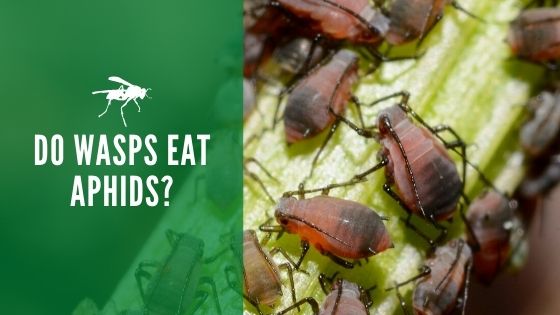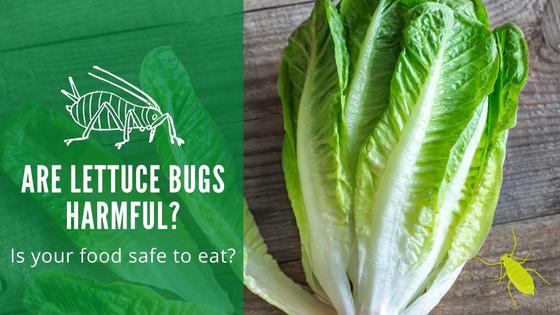Are Aphids Harmful to Humans?
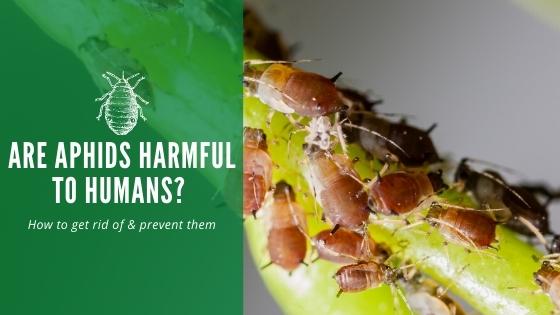
Aphids are a plant pest and the nemesis of every gardener. An aphid infestation can destroy a garden in a very short time. One thing you might be wondering is if aphids are harmful to humans and plants.
What are aphids?
Aphids are soft-bodied insects that are about 1/4 inch long. They can be black, brown, gray, pink, white, yellow, or green. Some are translucent. They may or may not have wings. They love plants that are juicy and soft.
When the aphid population gets too big on a plant, it will cause adults to begin to grow wings.
They will fly off to colonize another plant. Many of them specialize in a certain type of plant and are named for the plants they colonize. You can find cabbage aphids, bean aphids, and potato aphids. They love leafy greens and succulents, too.
The main harm to humans is that aphid populations can grow quickly and decimate a garden. Any gardener knows that they need to do a regular inspection for aphids and tackle the problem as soon as it is found. There are many organic methods, and aphids have some natural predators like ladybugs.
Can You Get Sick from Aphids?
Of course, it is a good idea to check the underneath of any food that you wish to consume and make sure to wash it thoroughly, but what happens if you accidentally eat an aphid? The good news is that if you accidentally consume a few of these insects, they will not harm you. Some who have experienced this accidentally report a taste that ranges from bitter to sweet.
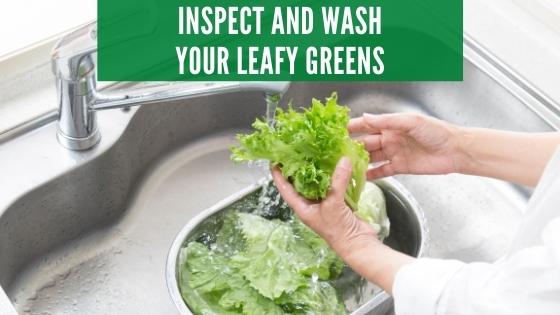
If you have an infestation of aphids, it is always best to inspect your leafy greens like kale, lettuce, or cabbage before consuming them. For those who want to make sure they do not accidentally consume any of these unwanted pests, you can float your leafy greens in saltwater.
It is suggested that you first dissolve about one tablespoon of salt in about a cup of water and heat it. Then, add the saltwater to a sink of cold water and let your leafy greens soak for about 30 minutes.
Aphids have a sticky substance that helps them stick to leaves, making them hard to wash off with just water alone. Even if you remove the aphids by hand, the sticky substance is still there and can make your greens taste bitter. Soaking your leafy greens in saltwater dissolves the sticky substance, so you can enjoy your greens aphid-free.
Do Aphids Bite Humans?
Aphids have mouthparts specially designed for sucking plant sap. Their mouths consist of a pair of stylets for piercing plant tissue, a proboscis for sucking up the sap, and a highly developed salivary system. They cannot physically bite humans, but coming in contact with them can cause a rash in sensitive people.
Some instances of an aphid confusing a human for a plant have been noted. This might happen if you work with the plants that attract them and smell like their favorite food. Usually, such an incident only causes a small red dot that is much less than the average mosquito bite and is not a cause for concern.
Aphids do not have the mouth part to bite humans or other insects. However, interestingly, they are known to pierce other aphids to obtain sap or honeydew. They can only do this because the bodies of the other aphids are soft, like the plant material they prefer.
Aphids and Ants
One thing to note is that ants will farm aphids because they like honeydew. The aphids provide the ants with a sugary meal, and the ants will help care for and protect the aphids from predators and parasites. The ants will stroke the aphids with their antennae to get them to release the sugary substance. The sugary substance is the excrement and waste from the digestion of plant sap.
Ants have an interest in making sure aphids are well-fed and safe. Aphids are poor flyers and poor climbers. If they fall off a plant, they will have difficulty climbing back up the stem. When the aphids deplete a plant, the ants will carry a few of them to a new plant and start the aphid farm all over again.
Some ants will also carry aphid eggs into their ant nests for the winter months, tending them and making sure the conditions in the nest are the right temperature and humidity to keep the eggs safe. When the eggs hatch, the ants will carry them to a host plant.
Ants have been known to go as far as to destroy the eggs and nests of known aphid predators, like ladybugs. The relationship is not always friendly, and ants are interested in keeping aphids in one place, even tearing the wings off aphids so they cannot fly away.
Getting Rid of Aphids
If you are a gardener, you must perform daily inspections to make sure that you catch an aphid infestation as soon as it occurs. They can quickly multiply and destroy a plant. Once you have an infestation, they will spread throughout the garden quickly. Taking care of the infestation when it is small is the best method.
Fortunately, aphids are relatively easy to control if they are found early. Some gardeners use one method to plant things that they will be attracted to, like nasturtium, cosmos, dahlias, asters, mustard, or zinnias, and then remove them from these plants in hopes that the aphids will not attack their food crops.
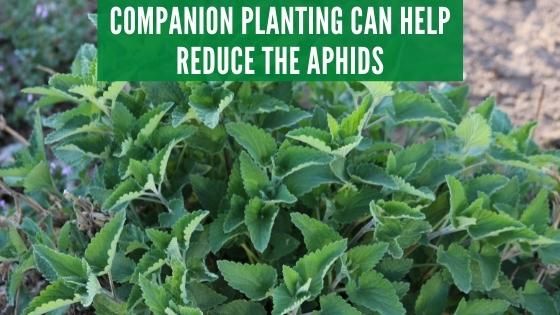
You can also plant things they do not like, such as chives, leeks, onions, catnip, and marigolds. Companion planting methods can help reduce the aphid population locally, but they will not work to get rid of them permanently.
Some people hand-pick the aphids from the plants, but this is time-consuming, and they will just come back. Simply spraying them with a stream of water will knock them off plants. A few tablespoons of dish soap in a spray bottle is another method that will effectively remove them. Some people use a few tablespoons of vinegar in a spray bottle, but this should be used with caution because it can harm some plants.
Several essential oils are known to control and repel aphids from plants effectively. One of them is neem oil, available in some organic garden centers as a spray. You can also mix four to five drops of peppermint oil in a spray bottle and coat the plant.
Other central oils that work for repelling aphids and getting them off the plant include clove, thyme, and rosemary. These essential oils will kill adult aphids and kill their larvae and eggs. This is the best way to destroy an aphid colony and keep them from spreading throughout the rest of your garden.
Fortunately, aphids are not directly harmful to humans other than destroying our gardens, house plants, and flowers. The best way to keep them from causing your plants to wilt and die is to be vigilant and attack any infestation as soon as it is found. The good news is that aphids are easy to control, and many natural solutions work well.

